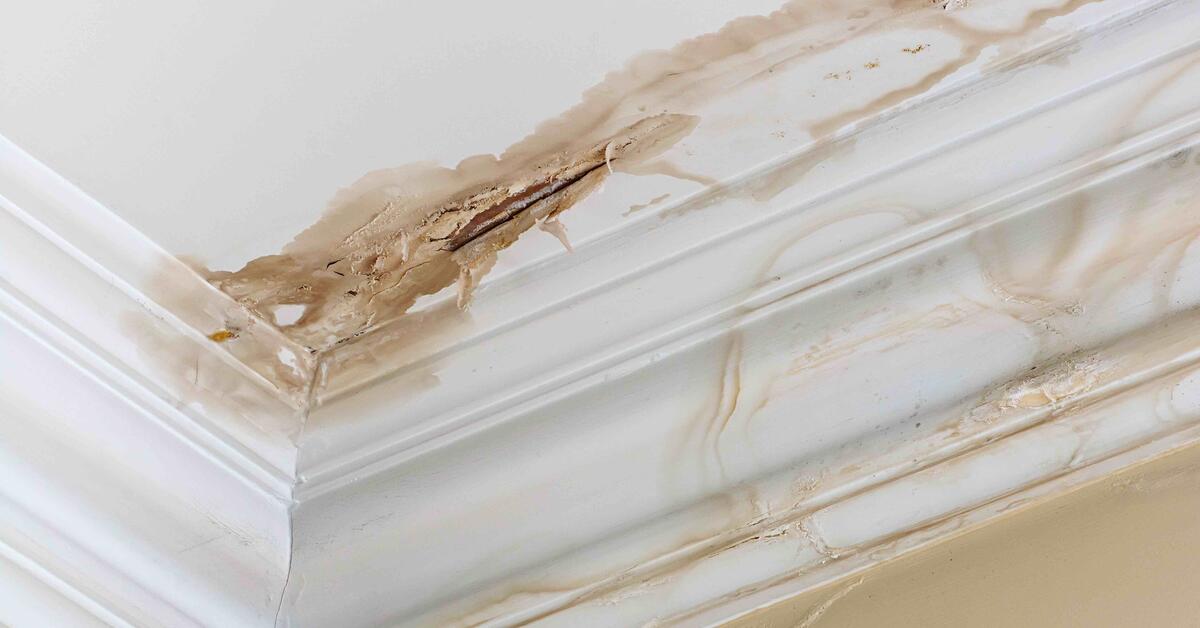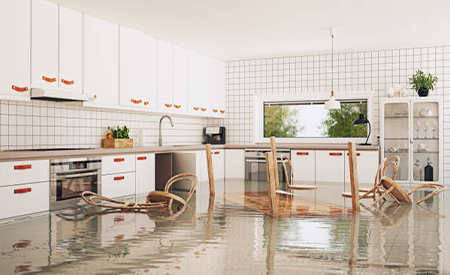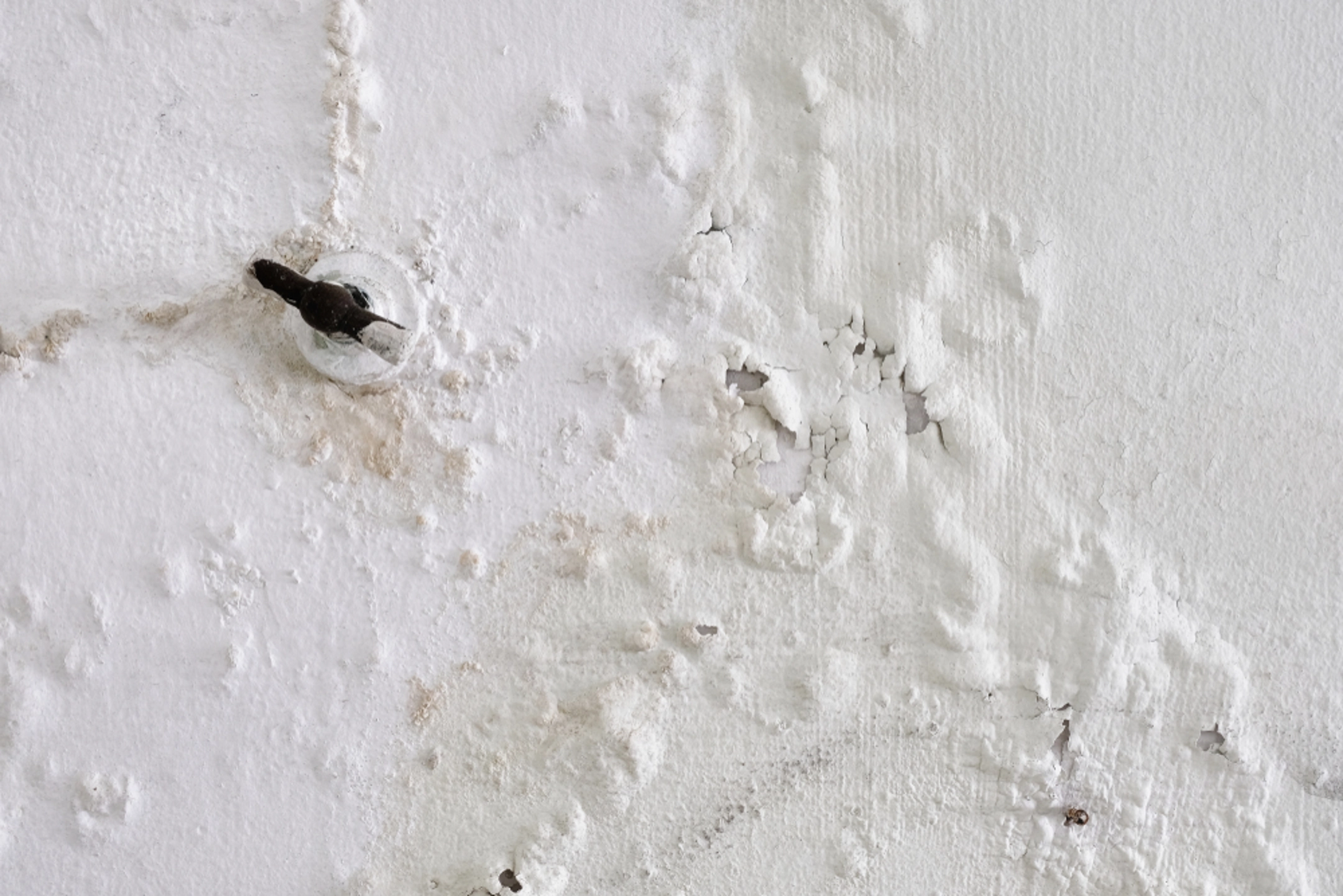Full-Spectrum Water Damage Repair Services for Complete Property Restoration
Full-Spectrum Water Damage Repair Services for Complete Property Restoration
Blog Article
The Process of Water Damage Cleanup: Guaranteeing Your Home Is Recovered Effectively
Water damages can be a daunting obstacle for home owners, requiring a meticulous and organized clean-up process to recover security and performance. An extensive analysis is essential to determine the level of the damages and figure out the suitable remediation actions. Following this, reliable water extraction methods play a critical duty in minimizing additional injury. The subtleties of drying out, sanitizing, and eventual repair are equally essential and frequently overlooked. Recognizing these stages can make a significant distinction in the end result of your home's restoration, prompting a closer take a look at what each step involves.
Analyzing the Damage
Upon uncovering water damage, the initial step is to completely examine the level of the impact. This first examination is essential, as it aids establish the necessary actions for efficient clean-up and repair. Begin by evaluating the influenced areas, including walls, ceilings, floorings, and individual belongings, to recognize the source of the water invasion, whether from flooding, leakages, or condensation.
Documenting the damages is vital for both insurance policy claims and preparing remediation initiatives - damage restoration services. Use photographs and created notes to catch the severity of the damage, keeping in mind any kind of afflicted structural elements and products. Pay unique focus to locations that might not be promptly visible, such as behind wall surfaces and under carpets, as hidden moisture can cause more problems, consisting of mold development
In addition, analyze the timeline of the water exposure. The longer the materials remain damp, the higher the capacity for damages. Recognizing the period of exposure will notify the urgency of remediation initiatives. Inevitably, a detailed assessment lays the groundwork for a successful water damages cleanup process, making sure that all impacted locations are attended to effectively and extensively.
Water Extraction Techniques

Experts generally utilize completely submersible pumps for larger quantities of water, which can quickly alleviate flooding in cellars or various other influenced areas. For smaller amounts, wet/dry vacuum cleaners are commonly made use of to extract residual moisture from carpetings and tough surfaces. Furthermore, using portable extractors enables targeted removal in constrained areas or locations with fragile products.
In circumstances of polluted water, such as sewer or floodwater, advanced extraction strategies may entail the use of biohazard equipment to make sure safety and conformity with wellness regulations. High-powered extraction tools are crucial in decreasing water retention in structural materials, which can result in mold growth and structural deterioration if not attended to without delay.
Eventually, the efficiency of water removal techniques plays a crucial function in the overall success of the water damages cleanup procedure, laying the foundation for subsequent restoration efforts.
Drying and Dehumidification
As soon as standing water has actually been effectively removed, the following crucial phase in the water damages cleanup process is drying and dehumidification. This step is vital to avoid further damage and mold fire damage and mildew growth, which can take place within 24 to 48 hours in wet settings.
To accomplish efficient drying out, specific equipment such as industrial-grade air moving companies and dehumidifiers is used. Air moving companies distribute air across wet surface areas, enhancing dissipation prices, while dehumidifiers minimize humidity degrees airborne, advertising a conducive setting for drying. The mix of these tools ensures that moisture is extracted from furnishings, floorings, and wall surfaces, permitting them to dry completely.
It is essential to keep track of the drying out procedure carefully. Specialists usually utilize wetness meters to examine the moisture web content in various products, ensuring that all impacted areas get to acceptable dryness degrees. This careful technique assists to avoid concealed moisture pockets that might lead to architectural damages or harmful mold and mildew growth.

Cleansing and Sanitizing
After the drying out and dehumidification phase is full, the next important action in water damages cleanup is cleaning up and sanitizing the impacted areas. This procedure is critical to avoid the growth of mold, bacteria, and other microorganisms that thrive in damp environments.
The cleansing stage usually involves getting rid of any type of debris, dirt, and pollutants from surfaces using specialized cleaning agents. For difficult surfaces, a combination of soap and water or industrial cleansing products is typically employed. Soft products, such as upholstery and rugs, may require more extensive cleaning approaches, including steam cleansing or deep removal methods, to guarantee detailed sanitation.

Sanitizing follows cleansing, utilizing EPA-approved disinfectants to eliminate harmful bacteria. This step is necessary, particularly in areas that may have come right into call with floodwaters or sewer, as these resources can pose major wellness risks.
Additionally, it is crucial to resolve any continuing to be smells, which may require making use of smell neutralizers or advanced methods like ozone treatment. Appropriate cleaning and disinfecting not just recover the safety and health of your home but also lay the groundwork for effective restoration and repair services in succeeding stages of the water damage cleanup process.
Repair and Repairs

As soon as the evaluation is total, restoration efforts can start. This usually includes fixing or changing damaged materials, ensuring that all job complies with local building regulations and requirements. For example, if drywall has been compromised, it will certainly require to be gotten rid of and replaced with new material. Furthermore, flooring might call for comparable focus, relying on the level of water exposure.
It is essential to engage seasoned reconstruction experts during this process, as they have the expertise to handle complicated repairs properly. Furthermore, they can assist alleviate prospective future problems, such as mold growth or structural instability, thus making certain a habitable and secure living environment. Ultimately, reliable remediation and repair services restore the home's integrity and improve its overall value.
Final Thought
To conclude, the process of water water remediation definition damage cleanup is vital for restoring a home to its pre-damage condition. Each phase, from evaluating the damage to executing efficient water removal techniques, followed by detailed drying, sanitizing, and essential fixings, plays a crucial function in making certain security and conformity with building requirements. Effective execution of these steps not just minimizes immediate damages yet also improves the lasting integrity and value of the residential or commercial property.
Water damage can be a difficult difficulty for home owners, demanding a thorough and organized clean-up process to recover safety and performance. Eventually, a thorough analysis lays the groundwork for a successful water damages clean-up process, guaranteeing that all affected locations are resolved efficiently and completely.
Effective water removal strategies are crucial in alleviating damage and stopping more issues complying with a water invasion event.In conclusion, the process of water damage clean-up is crucial for restoring a home to its pre-damage problem. Each phase, from assessing the damages to applying effective water removal techniques, adhered to by visit this site extensive drying, sterilizing, and necessary repair services, plays a vital role in making certain safety and security and conformity with building requirements.
Report this page